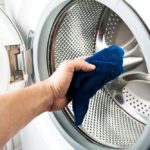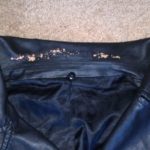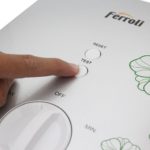Regular maintenance and proactive checks on everyday appliances such as washing machines and water purifiers can help prevent unexpected issues.
Washing Machine
During the rainy season, washing machines become a household’s best friend, thanks to their spin-dry function that helps dry clothes faster. However, a common issue with these appliances is weak water flow, which affects the machine’s overall performance. When faced with this problem, the first step is to inspect the inlet and outlet valves for any debris or buildup. Subsequently, clean the pipes to increase water pressure into the machine.
If the water flow remains weak even after addressing these issues, consider installing a pressure booster pump to increase the water pressure to your washing machine.
Water Purifier
Water is essential for our health, but drinking the recommended 1.5-2 liters daily doesn’t guarantee optimal health. The quality of your household water supply could be a concern, as it may contain harmful elements.
To address this, most families invest in a water purifier to remove heavy metals such as lead, mercury, iron, and manganese, as well as harmful bacteria and viruses like E.Coli, Coliform, Rotavirus, and Poliovirus.
However, water purifiers may encounter issues during their operation, such as intermittent functioning. This could be due to low water pressure, either from a low reservoir level or direct connection to the municipal water supply. In such cases, the water pressure may not be sufficient to fully close the low-pressure valve. To fix this, either raise the water reservoir or install a booster pump to increase the water pressure.
Booster Pump
With limited land availability, most urban dwellings today are multi-story homes or apartments. Many households rely on municipal water supply, which can be insufficient during peak hours due to high demand.
While a high-lift pump may seem like a solution, it might not be effective for appliances like washing machines, water heaters, and showerheads, resulting in weak water flow.
A pressure booster pump is an ideal solution in such cases. It directly pushes water from the pump’s pipe into the reservoir, ensuring a stable water supply even at the highest floors of a building. Additionally, it increases water pressure for appliances that require it.

Families can choose a suitable booster pump based on their technical specifications.
Depending on your needs, you can opt for a 125W or 200W booster pump. It’s advisable to install a temperature-sensitive relay to prevent overheating during continuous operation. When comparing pump capacities, pay attention to whether the flow rate is specified per minute or per hour. Additionally, consider the height from the water reservoir to the point of use and select a pump with a suction height that exceeds this distance by 3-5 meters to compensate for friction losses.
To maintain aesthetics and minimize noise disruptions, carefully consider the pump’s installation location.
Huyền Anh
Panasonic is a renowned Japanese brand that offers a range of booster pumps with different capacities to suit various needs. Their pumps ensure a consistent water supply even during peak hours for all your household appliances. For more information, visit their website or Fanpage.
For installation advice and exclusive offers, contact the nanoco showroom: 83 Đường Láng, Ngã Tư Sở, Đống Đa, Hanoi, or 10 Trương Định, Bến Thành, District 1, Ho Chi Minh City.
Hotline: 0909 84 00 28 or 1900 6711







































